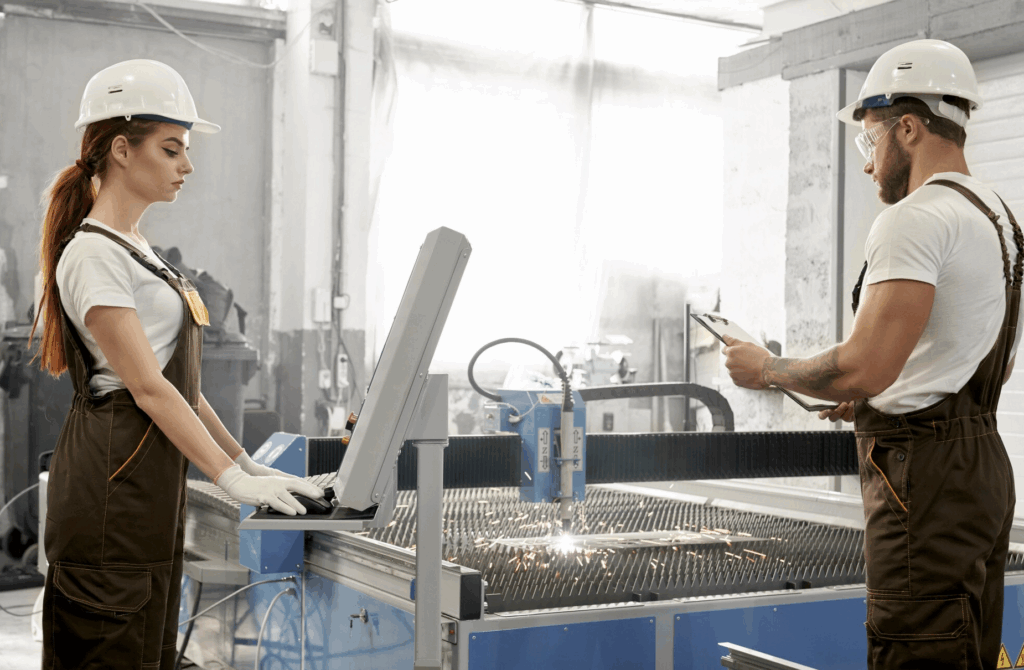

Introduction
When it comes to metal fabrication, quality is key. Whether you’re in aerospace, architecture, or automotive, top-notch fabrication services can elevate the integrity and functionality of your projects. But what truly defines excellence in metal fabrication? This article explores superior fabrication services, helping you set expectations and make informed decisions.
Critical Features of Top-Quality Metal Fabrication
At the heart of metal fabrication is precision. Top-quality services focus on creating components that meet rigorous standards of accuracy. This precision ensures parts fit seamlessly into larger assemblies, enhancing product performance and safety.
Customization is another vital feature. Quality fabrication services are not “one-size-fits-all” but provide customized solutions that address individual needs. This capability is significant for industries with unique demands, where customization can significantly impact efficiency and usability.
Moreover, the ability to integrate complex designs into the fabrication process sets top-tier services apart. Advanced technologies such as CAD software allow fabricators to easily produce intricate designs, ensuring the final product precisely aligns with client specifications.
The Role of Modern Technology
The advancements in fabrication technology have revolutionized the industry, with innovations like CNC machining leading the way. CNC machines offer unparalleled precision, drastically reducing the margin for human error. Their ability to replicate designs consistently makes them indispensable in achieving high-quality output.
3D printing represents another technological advancement that allows fabricators to produce intricate shapes that were once difficult to manufacture. It simplifies the prototyping process, reducing time and expense while facilitating quick revisions.
Automation and robotics improve fabrication methods by refining workflow and boosting production rates. By employing intelligent systems, fabricators can attain a degree of efficiency that was impossible before, creating high-quality parts at a competitive speed.
Quality of Materials and Craftsmanship
The caliber of materials utilized in fabrication significantly influences the final product’s strength, durability, and functionality. Premium services employ high-grade metals that have been evaluated for their strength and resistance to environmental conditions.
Nonetheless, the quality of materials by itself is insufficient. Proficient craftsmanship is essential. Specialized fabricators offer extensive experience and meticulous attention to detail, guaranteeing that projects are carried out perfectly. Integrating high-quality materials and adept artisans produces items that adhere to the highest industry standards.
Moreover, comprehensive quality control procedures are enforced at each phase of the fabrication process. These measures ensure that each component is up to code and that the final products are free from defects and ready for immediate use in their respective applications.
Benefits of Collaboration and Communication
An often overlooked aspect of top-quality fabrication is the importance of communication and collaboration. The best services prioritize building client relationships, centering around clear and consistent dialogue. This leads to a thorough understanding of project requirements and expectations.
Collaboration fosters innovation, enabling fabricators to anticipate challenges and offer creative solutions. It also ensures alignment between the client’s vision and the fabricator’s capabilities, resulting in products that surpass expectations.
Integrating feedback loops and flexible project management practices allows for swift and effective adjustments, ensuring the final deliverables align with the client’s evolving needs.
Environmental Responsibility
As sustainability becomes a central focus globally, top-tier metal fabrication services are adopting green practices. Efficient use of materials, energy-saving techniques, and recycling initiatives are implemented to reduce environmental impact.
Furthermore, innovations like waste reduction technologies and clean energy adoption demonstrate a commitment to environmental stewardship. These practices help mitigate the ecological impact and align with clients’ growing demand for responsible and sustainable business operations.
Conclusion
Precision, customization, technological integration, material quality, and expert craftsmanship define top-quality metal fabrication services. These services meet and exceed industry standards by prioritizing collaboration, communication, and environmental responsibility. When seeking fabrication services, understanding these core attributes will guide you in making the best choice for your project’s success. As the industry advances, embracing these standards will be crucial for fabricators aiming to offer exceptional service and lasting value.
